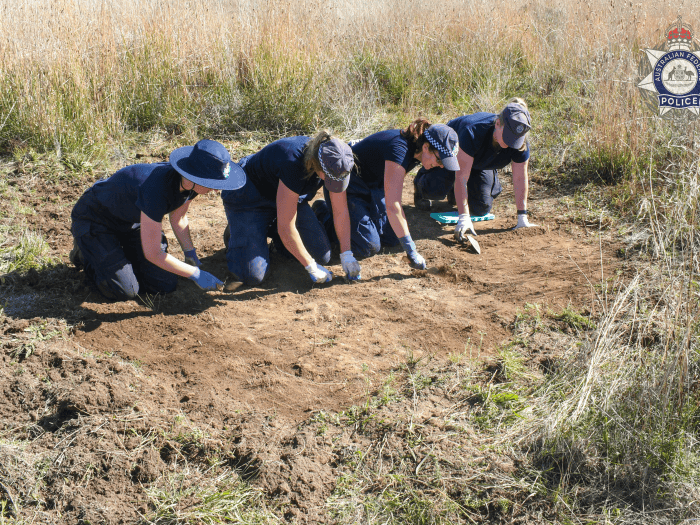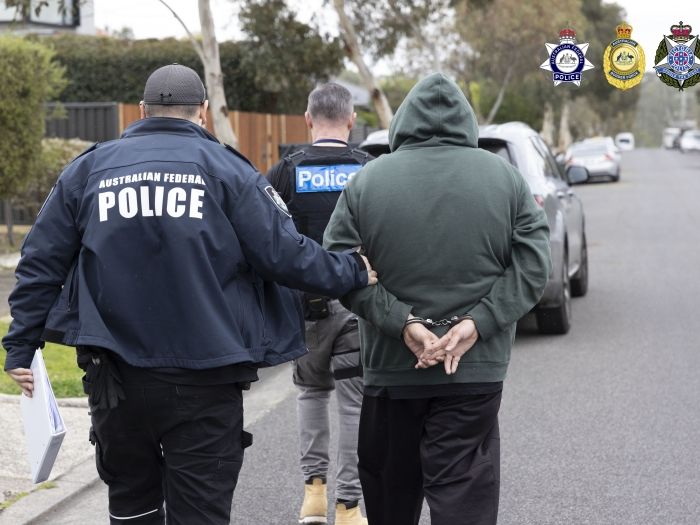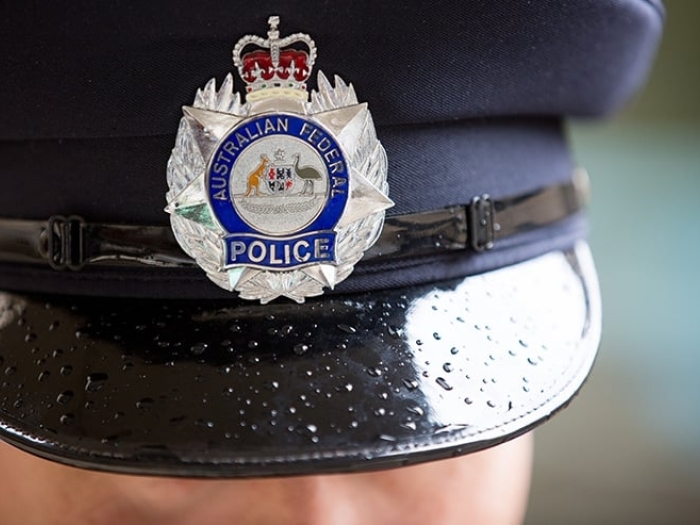Going global: How the AFP’s International Command combats the illicit drug trade in Southeast Asia
Editor’s note: Images, footage and audio grabs available via Hightail
When criminals embedded meth in 32 tonnes of paraffin wax, they thought they'd come up with a foolproof way to get the drugs into Australia.
However, they couldn't have been more wrong.
Unfortunately for them, the shipment was already in the crosshairs of the AFP and Malaysian authorities, who had been working the long game under a new anti-drug-trafficking taskforce.
This meant tracking the consignment – containing 166 drums of the paraffin wax – for three months, following its departure from Iran. They then substituted the drugs, allowed the consignment to continue on, and waited for the perfect moment to strike.
That moment came once the consignment hit Australia’s shores, with authorities intercepting and seizing the consignment, and later charging a Melbourne man for his alleged role in attempting to import this massive drug haul.
A major global drug operation such as Operation Tiger-Milang, as this one was called, isn’t resolved overnight, and some can take months or years of global cooperation.
International law enforcement partnerships are a critical tool in the AFP’s arsenal and can provide real-time intelligence sharing, joint-agency operations and coordinated efforts to dismantle transnational serious organised crime.
Among the many criminal threats faced by law enforcement worldwide, the illicit drug trade remains a priority due to its devastating impacts on every country’s economy, health services, and national security.
The AFP has a long history of tackling the illicit drug trade at its source, with 178 personnel strategically positioned across 34 countries worldwide as of 28 February, 2025.
They work directly with foreign law enforcement partners to disrupt drug trafficking routes, target organised crime syndicates and prevent significant quantities of illicit drugs from entering Australia every year.
AFP Commander of International Engagement Kate Ferry said the AFP worked closely with international partners to target transnational serious organised crime networks and stop the flow of illicit drugs into our country.
“It takes relentless surveillance, strong international relationships, and an unwavering commitment from our investigators to keep Australians safe from the growing threat of illicit drugs,” said Commander Ferry.
“We are targeting the root of the problem — serious organised crime networks. We are making significant strides in disrupting illicit drug routes through our strong international partnerships, working closely together across 34 countries.”
One of these countries, Malaysia, remains a key transit point for serious organised crime networks to exploit and transport illicit drugs – in particular, methamphetamine.
The AFP launched its first overseas office in Malaysia in 1973 to combat drug trafficking from the Golden Triangle. Decades later, it remains a focal point for the AFP in the global fight against the illicit drug trade.
In the 2023-24 financial year, Australian authorities seized approximately 10.9 tonnes of methamphetamine at the Australian border. Of this amount, about 1 tonne, or 11%, was transhipped through Malaysia.
The AFP and Royal Malaysia Police (RMP) continue to strengthen their partnership, formalising the ongoing cooperation with the establishment of a new specialised taskforce, Taskforce Tiger, in November 2024.
Since then, officials have prevented 1.65 tonnes of methamphetamine from reaching Australian streets by transhipment through Malaysia. Of this amount, 1.18 tonnes were disrupted by Taskforce Tiger operations.
These amounts exclude the 32 tonnes of wax seized under Operation Tiger-Milang. The wax is still subject to forensic analysis to determine its methamphetamine component.
The AFP has established similar bilateral taskforces in China (Taskforce Blaze), Thailand (Taskforce Storm) and Cambodia (Taskforce Dragon).
Commander Ferry said the AFP would continue to work with international partners to establish specialised taskforces to help combat the global drug trade and prevent the devastating consequences of drug use and addiction.
“Illicit drugs represent a growing health crisis across the globe, with devastating impacts on communities, law enforcement, health services, and economies,” said Commander Ferry.
“Australia is a lucrative market for criminal networks and illicit drug users, who will pay high prices for drugs. It is a billion-dollar industry that costs even more in harm, grief, and health, social and economic damages.
“The AFP remains committed to combating the global drug trade, which continues to pose a serious threat to communities both in Australia and worldwide.”




